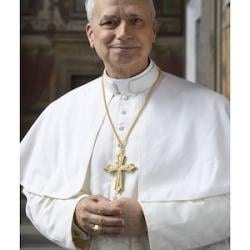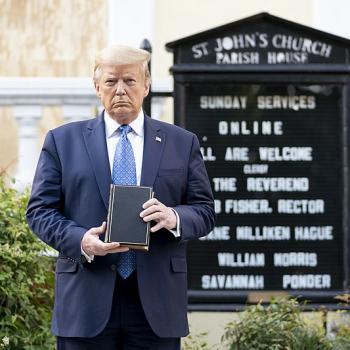Opio Toure
Opio Toure was my friend.
We knew one another before either one of us was elected to office, back when we were both young and full of ourselves. Then, for a few blessed years, we served together in the Oklahoma House of Representatives.
We differed, as people always do, on a couple of issues. But our hearts walked the same path. There was a time, and it wasn’t so long ago, when being black in the Oklahoma House meant taking a lot of guff. It was subtle guff, but guff, just the same.
Opio, back when we both were young and full of ourselves.
I remember one time when a battle of some sort of ugly guff-ism was coming down, I got overwhelmed. I turned to Opio in disgust. “You need to make me an honorary black person,” I said, “because I’m sick of these white folk.”
He looked at me and said, “Oh, you black. You black.”
That remains a treasured memory for me, and it will until I see Opio again.
When things got tough, Opio and I used to leave Bible verses on one-another’s desks. Those verses are also among my most treasured memories.
Opio was a Baptist preacher, who had Catholic relatives. One of his favorite items was a Rosary that had belonged to his aunt. He carried it around on the House floor, fingering the beads for comfort. We talked about the holiness of that Rosary, soaked with years of the prayers of his God-fearing, God-loving aunt.
It is not an exaggeration to say that I love Opio Toure, my brother in Christ.
Linda Richardson, prayed my asthma away.
Then, there’s the God-fearing, God-loving black women who grace this world.
I have asthma. A few years back, the asthma almost did me in. It got worse and worse, until every step I took felt like I was walking through knee deep mud. Then one day, my assistant, Linda Richardson, reached out with the authority of the Spirit-filled and laid her hands on me and prayed, rebuking the asthma in Jesus name.
This was totally spontaneous on her part, we were just talking when she did it. But I felt the power immediately. From that day forward, the asthma began backing off. It’s still there, but it’s quiet. I don’t need medicine for it, haven’t needed medicine for it for a long time.
Kurt David English
I remember when I was working on my Master’s degree. My fellow student, Kurt David English, and I teamed up to help each other through the degree process. Kurt is a black, Spirit-filled man. We prayed together and talked about Jesus together and supported one another through that degree process. I don’t think either one of us would have made it without the other.
Representative, soon to be Senator Anastasia Pittman, carrying a Martin Luther King sign.
Then there’s my seat-mate, office mate and best legislative bud Representative, soon to be Senator Anastasia Pittman and our assistant, the incomparable Miss Trena Byas, as well as Gracie Monson. These praying women have gotten me through a lot of deep water. During tough times in the legislature, they formed a kind of retreat around me, a safe place. They made a home for me when being a pro life Democrat left me otherwise homeless.
Representative Anastasia Pittman and Miss Trena Byas, my legislative homies.
The powerful praying woman of God, Gracie Monson
This is just the tip of it. I could write a book on the powerful praying black people who have blessed my life. In this world of politically-correct weak-and-worthless Christianity that tries to make itself small enough not to be a target of those who hate Christ, black Christians are the unafraid and anointed.
Democratic Floor Leader, Representative Opio Toure
I once asked Opio (I was pretty mad when I asked it) why it was OK for a black Democrat to be an outspoken Christian but a white Democrat Christian who talked about Jesus got slapped around by the party.
He laughed and shook his head. “I don’t know,” he said. Even though he didn’t have an answer, the acknowledgement of what I was facing helped me enormously.
Back when Democratic activists were putting out flyers in the district I represented denouncing me directly for my Catholic faith in the most bigoted manner possible, it was Opio who said “This is outrageous.” No one else would stand with me.
This post is more reminiscence than anything else. But it does have a message: If you don’t like black people, you’d better not plan on going to heaven, because there’s going to be a lot of them there.
Saint Josephine Bakhita, captured by slavers, freed in Christ.
Another message I’d like to pass along is that if you’re a white Christian and you haven’t found yourself a few Spirit-filled, black, praying friends, you need to get out more, because you are missing your blessing.
Black spirituality, including Black Catholic spirituality, is different from white spirituality in the precise ways that we white folks need to improve ourselves. Black spirituality is unashamed of the name of Jesus. Black Christians don’t mess around trying to hide their Jesus so that no one will accuse them of all the things that Christians get accused of in this post Christian America. They aren’t afraid of being harassed and criticized for Christ. They step right out there and proclaim the Lord and His power, and they mean it. Nobody talks their Jesus down to them. They won’t allow it.
Black Christian power was shaped in the crucible of hundreds of years of slavery and second-class citizenship. It was black faith and that powerful black praying that allowed them to walk right out of those ghettos, to march through the fire-hoses and police dogs and cops with truncheons and lead this whole nation to a rebirth of equality.
Mother Mary Lange, founder of the Oblate Sisters of Providence
Faith alone explains the power of the Civil Rights Movement that fought and won a war without bullets or guns against an opponent who had and used both those things.
We don’t make enough of what black people have accomplished for themselves and for this country by enduring and winning the Civil Rights fight. We emphasize the wrong things. The evil of their persecutors was true evil. But the focus should be on the nobility and power of the fight that black Americans made against that evil.
The Civil Rights Movement was faith with legs. It was truth spoken to power. It was, in a way that we don’t acknowledge, our finest hour as a nation.
And it was Spirit-filled from bottom to top. It was an expression of black Christianity and the power of a praying people.
White Christians need black Christians. We need to learn from them.
Try spending time in a black church once in a while. I promise you, you will be blessed.












